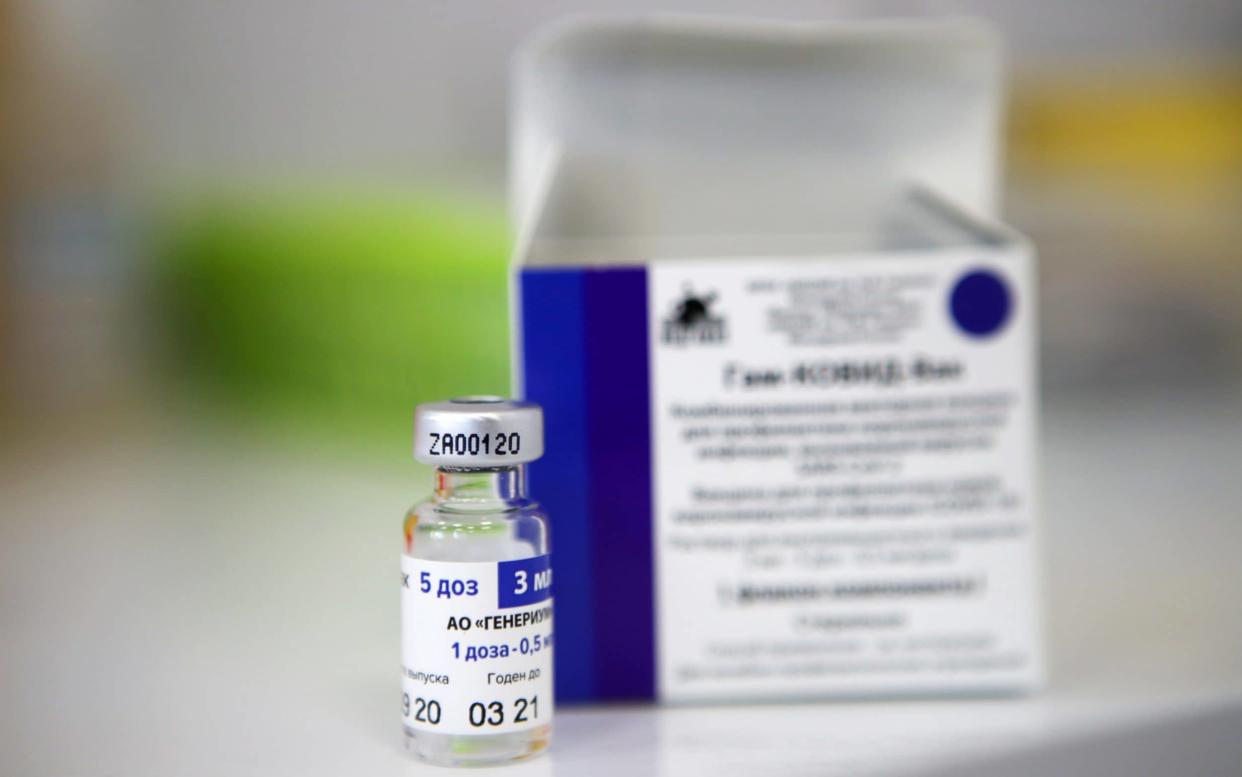Russia starts mass COVID-19 vaccination with Sputnik V shot as clinical tests continue

Moscow began distributing the Sputnik V COVID-19 vaccine via 70 clinics on Saturday, marking Russia's first mass vaccination drive against the disease, the city's coronavirus task force said.
The task force said the Russian-made vaccine would first be made available to doctors and other medical workers, teachers and social workers because they ran the highest risk of exposure to the disease.
"You are working at an educational institution and have top-priority for the COVID-19 vaccine, free of charge," read a text message received by one Muscovite, an elementary school teacher, early on Saturday.
It came as Russia reported a record high of 28,782 new COVID-19 cases on Saturday, including 7,993 in Moscow, the epicentre of the outbreak.
Authorities also confirmed 508 deaths related to COVID-19 in the past 24 hours, pushing the official national death toll to 42,684.
"Over the first five hours, 5,000 people signed up for the jab - teachers, doctors, social workers, those who are today risking their health and lives the most," Mayor Sergei Sobyanin wrote on his personal website on Friday.
The age for those receiving shots is capped at 60. People with certain underlying health conditions, pregnant women and those who have had a respiratory illness for the past two weeks are barred from vaccination.
Russia has developed two COVID-19 vaccines, Sputnik V which is backed by the Russian Direct Investment Fund, and another developed by Siberia's Vector Institute, with final trials for both yet to be completed.
Scientists have raised concerns about the speed at which Russia has worked, giving the regulatory go-ahead for its vaccines and launching mass vaccinations before full trials to test safety and efficacy have been completed.
The Sputnik V vaccine is administered in two injections, with the second dose expected to be given 21 days after the first.
After lifting its initial lockdown in June, Moscow reintroduced some coronavirus restrictions in October, such as remote learning for some secondary school children and a 30 per cent limit on the number of workers allowed in offices.

